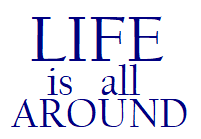In general, there are two main spheres of influence regarding cultures. There is the Western culture, with the USA and Europe, and the Eastern culture, with China, India, and the rest of Asia. Either is dominant in the respective countries, but both cultures in some way influence every society. And it all boils down to logic vs experience.
The eastern countries, especially the main city centers, have started to become even more western than the West. But at the same time, the West has seen an injection of Eastern influence in the form of philosophies, exercises, religions, or ways of life.
The intersection of logic and truth
There are many differences between these two cultures. One important distinction concerns the tool or means each uses to regard something as true. The Eastern culture, shaped by a mix of different philosophies and religions, such as Buddhism and Jainism, mainly employs experience to come closer to the truth.
On the other hand, the Western culture, rooted in Renaissance with influence from Roman and Greek philosophy, considers logic the primary attribute and criterion of truth. The central assumption is: “If something is true, it must be logical.”
I do not fully agree with that. I would instead claim: “If something is logical, it is probably true”. In other words, something can be true but may not make any sense. A prominent example is love. Most people have experienced love, and many logically notice it does not make sense.
After all, you do not love somebody because it is logical. In the past, or still today, in certain parts of the world, parents may logically locate the right partner for you, but this does not come out of love. You love someone, and this does not have anything to do with logic.
But because you experience love, you know it is worth having it. You know love is true, although it does not follow logic. Love is not the only example of something true but not logical. Still though, logic is not without its use. After all, if something is logical, it is most probably true.
Logic vs Experience: tools to regard something as true
In other words, according to these two cultures, there are two main tools one can employ to regard something as true. The most important criterion of truth is experience. I keep saying that everything one truly knows is from experience. It is a safe way to ensure that there are no deceptions or illusions in one’s life.
The next utensil in our tool kit has to do with logic. Logic is not a criterion for truth per se, but you can use it to grow and move toward truth. In other words, if something makes sense, there is likely a degree of truth behind it. And to verify or reject this truth, you can employ your experience to reach an understanding.
Belief: not particularly useful as a criterion of truth
Please, do not believe nor disbelieve what I say. After all, belief does not seem like a suitable candidate for a criterion of truth. Whether you believe or disbelieve something, it remains true or untrue.
To be more specific and illustrate with an example, I can talk about this exact text you are reading or the whole blog. Do not believe or take at face value what it says. At the same time, it is wise not to disbelieve it either, as this is also a form of believing.
Whether what I say makes sense or doesn’t, you only have your experience to see if it is true. You can use your past experience or employ your behavior to try it in the future and see for yourself. However, if it makes sense to you, you are more likely to try it, so you can verify and know for sure if that is true.
The use of logic
In short, logic can pave the way and move you closer to understanding if something is true or not. If equipped with experience, logic can be a tremendous and invaluable tool. But if one considers it the only criterion of truth, its potential is limited in many ways.
To be more specific, the logical aspect of the mind is extremely useful, even vital, to handle material aspects of life. When you investigate other dimensions of life, such as metaphysics or even spirituality, logic may not be as useful. After all, if something does not fit your logic, you will probably reject it.
Because you do not understand or you do not know something, you may think it cannot happen. One who thinks “What I do not know cannot exist” usually behave as if they wear a crown of ignorance. If your goal is growth, it is helpful to see that things you currently do not know, do not perceive, or do not understand actually exist.
The downside of logic
Logic is a tool we have. We may not need to become slaves of logic. There are areas of life where logic is of utmost importance. And yet, there are others aspects of life that logic can be of no use. One can use logic intelligently and know when to employ it and when to leave it aside.
For those who place logic above else, it can be conducive to seeing logic’s mechanics. It is best to come into this by experience, but in general, logic mainly separates everything. That is the main trick of the logical mind; it sets everything apart. Take laugh, for example. It takes a heart to laugh. Intellect cannot laugh; it can only dissect.
If you want to experience and see life in its immensity, you would need something more than logic, thoughts, or intellect. At the same time, you can enhance your life if you know to what extent your logic should go and where it should not go.
Take away:
- The most important criterion of truth is experience
- Logic can pave the way to growth and understanding
- Know when to use logic and when to leave it aside



